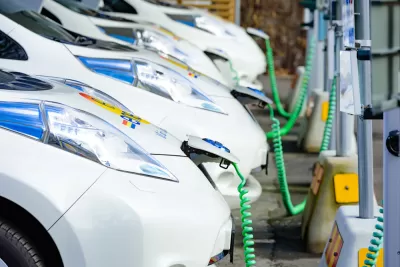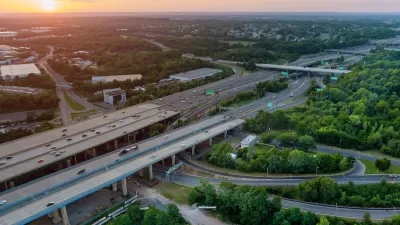Governor Jerry Brown and the California Legislature reached a historic agreement to raise the gas tax, but electric vehicle owners will now be required to pay a yearly fee, Will this impact EV sales in the US's best market?

Although the number of electric vehicles on the road continues to climb and new vehicles are being deployed into the market, recent state policy decisions have placed potential stumbling blocks in front of the growing industry. As part of the major California transportation infrastructure-funding package, EV owners will begin to pay a yearly fee to contribute to road maintenance.
California has the country's largest contingent of plug-in vehicle owners, and provides a myriad of financial incentives to encourage adoption. However, as a part of Senate Bill 1, the landmark transportation-funding package, California will charge a one-time registration fee of $100 for plug-in vehicles starting in the 2020 model year. The fees are part of a bill approved last week that is slated to generate more than $52 billion over 10 years, and will chip away at a backlog of repairs estimated to cost about $130 billion.
To investigate further, The Planning Report sat down with Joel Levin, Executive Director of Plug-In America, to explain the impact of these mixed policy signals. Levin reinforced an optimistic view of EVs in California and the global market overall, and is a stanch believe that EVs are the future for global transportation.
In addition to discussing the impacts of the transportation fees, Levin opines on the ongoing Volkswagen settlement that will fund EV charging infrastructure. Levin hopes for a single umbrella structure that would provide electricity as easily as driving to a gas station. He hopes that VW will be able to create a single structure, "a de facto standard for interoperability that other companies can jump into...and that creates an overarching framework that drives us toward interoperability of all stations."
FULL STORY: Electric Vehicles Not Exempt From Gov. Brown’s Road Repair Funding Plan

Alabama: Trump Terminates Settlements for Black Communities Harmed By Raw Sewage
Trump deemed the landmark civil rights agreement “illegal DEI and environmental justice policy.”

Study: Maui’s Plan to Convert Vacation Rentals to Long-Term Housing Could Cause Nearly $1 Billion Economic Loss
The plan would reduce visitor accommodation by 25% resulting in 1,900 jobs lost.

Planetizen Federal Action Tracker
A weekly monitor of how Trump’s orders and actions are impacting planners and planning in America.

Wind Energy on the Rise Despite Federal Policy Reversal
The Trump administration is revoking federal support for renewable energy, but demand for new projects continues unabated.

Passengers Flock to Caltrain After Electrification
The new electric trains are running faster and more reliably, leading to strong ridership growth on the Bay Area rail system.

Texas Churches Rally Behind ‘Yes in God’s Back Yard’ Legislation
Religious leaders want the state to reduce zoning regulations to streamline leasing church-owned land to housing developers.
Urban Design for Planners 1: Software Tools
This six-course series explores essential urban design concepts using open source software and equips planners with the tools they need to participate fully in the urban design process.
Planning for Universal Design
Learn the tools for implementing Universal Design in planning regulations.
Caltrans
Smith Gee Studio
Institute for Housing and Urban Development Studies (IHS)
City of Grandview
Harvard GSD Executive Education
Toledo-Lucas County Plan Commissions
Salt Lake City
NYU Wagner Graduate School of Public Service





























